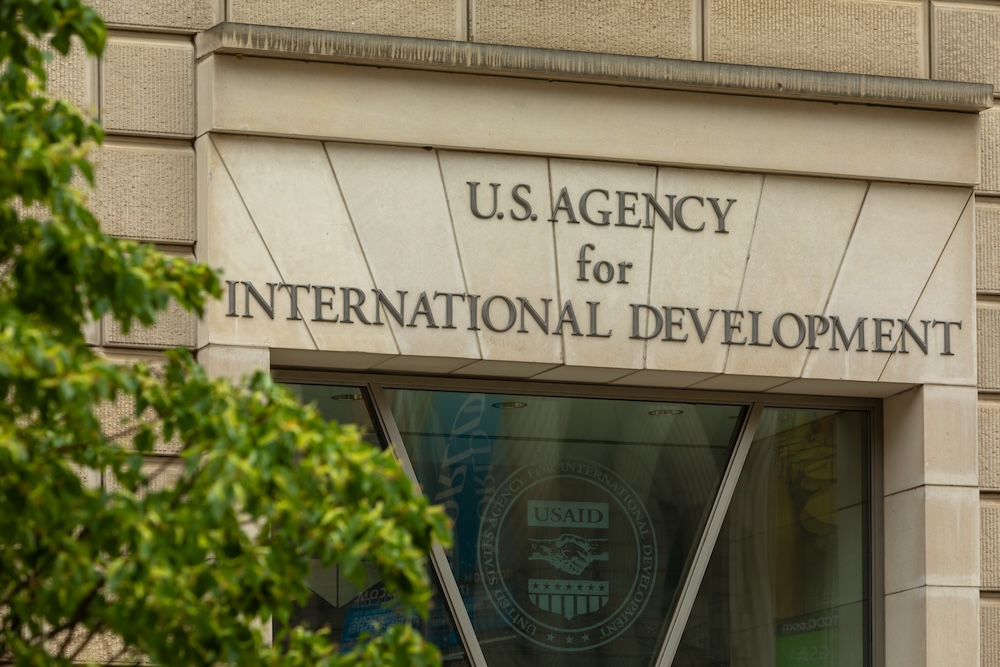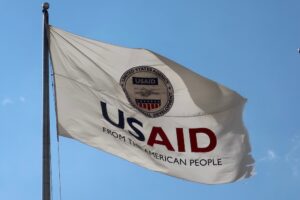Politics
NEW: Rogue Agency Spent Millions To ‘Fund Terrorism’ Abroad, Bombshell Report Claims

The U.S. Agency for International Development (USAID) has undergone significant changes under the Trump administration, with substantial involvement from Elon Musk, head of the Department of Government Efficiency (DOGE).
The administration has initiated steps to dismantle USAID, including placing the majority of its 10,000 employees on administrative leave and shutting down its Washington, D.C., headquarters. Musk has publicly criticized USAID, labeling it a “criminal organization” and stating that it is “time for it to die.”
A new investigation first reported by Bethany Blankley at The Center Square has reported that millions of U.S. taxpayer dollars, distributed through the U.S. Agency for International Development (USAID), were diverted to fund terrorism abroad.
A multi-year investigation by the Justice Department and the U.S. Attorney’s Office for the District of Columbia exposed a scheme in which aid money intended for Syrian civilians instead reached terrorist organizations. One case in particular involves a Syrian national accused of redirecting more than $9 million to a group affiliated with al-Qaida.
A multi-year probe by the U.S. Department of Justice and the U.S. Attorney’s Office for the District of Columbia revealed in November 2024 that a significant portion of USAID’s humanitarian aid funds ended up in the hands of terrorist groups. Of particular concern is a recent case involving a Syrian national who allegedly diverted more than $9 million in U.S. government-funded aid to a terrorist organization affiliated with al-Qaida.
The report names Mahmoud Al Hafyan, a 53-year-old Syrian, as the key figure in a fraudulent scheme that siphoned off aid money intended for war-torn Syrian civilians. Al Hafyan, also known as Abu Abdo Al-Homsi, was indicted on 12 counts of major fraud against the United States for his role in misdirecting aid to the Al-Nusrah Front (ANF), a designated foreign terrorist organization affiliated with al-Qaida in Iraq.

USAID awarded a staggering $122 million to an NGO (referred to as NGO-1) between January 2015 and November 2018, earmarked for humanitarian assistance, including food aid for Syrian refugees. Al Hafyan, who managed the NGO’s operations in Syria, oversaw 160 employees and was responsible for distributing food kits to conflict-affected regions.
Instead of ensuring the aid reached displaced families, Al Hafyan and his co-conspirators funneled millions of dollars’ worth of food kits to commanders of the Al-Nusrah Front. Reports indicate that these supplies were then sold on the black market, lining the pockets of ANF leaders and further funding their operations. The fraudulent scheme involved falsifying logs, inflating aid recipient numbers, and forging documentation to deceive USAID officials.
“This defendant not only defrauded the U.S. government, but he also gave the humanitarian aid he stole to a foreign terrorist organization,” U.S. Attorney Matthew Graves stated at the time. “While this foreign terrorist organization fought with the cruel al-Assad regime, the people who were supposed to receive the aid suffered.”
The FBI and USAID’s Office of Inspector General (OIG) led the years-long investigation into Al Hafyan’s fraudulent operations.
“The FBI’s number one priority is to fight terrorism, including identifying and investigating individuals who are enabling terrorist activities through financial support,” said FBI Special Agent Sanjay Virmani.
The case is just the latest in a growing list of allegations surrounding USAID’s handling of funds. The agency has faced scrutiny for years over its lax financial oversight and questionable funding decisions.
In a separate case from March 2022, Project Concern International (PCI), a global health nonprofit, agreed to pay $537,500 to settle allegations that it knowingly submitted false claims in USAID-funded projects.
Additionally, the International Rescue Committee (IRC) paid nearly $7 million to resolve allegations of procurement fraud in USAID-funded relief efforts for displaced Syrians. Investigators discovered that IRC staff engaged in bid-rigging, kickbacks, and other forms of misconduct that led to inflated prices for essential goods and services, ultimately costing U.S. taxpayers millions.

